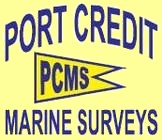 Port Credit Marine Surveys & Yacht Delivery 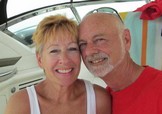 Your delivery & survey crew 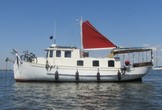 Our boat Society of Accredite Marine Surveyors 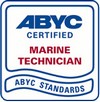 American Boat & Yacht Council 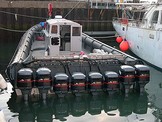 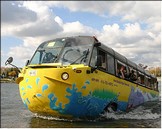   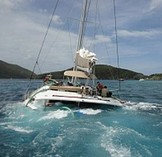 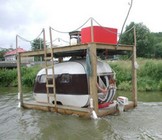
|
Choosing a Marine Surveyor and 10 questions
to ask Among the various acronyms and titles you will find on Marine Survey Reports and business cards are Master Marine Surveyor, Accredited Marine Surveyor, IIMS, IMS, Accredited and Certified Marine Surveyor, Master Shipwright, Qualified Marine Surveyor, FIMarE, USSA Navtech , GAMMS, ACMS Association of Certified Marine Surveyors, CIMarE, OAMS, AMIMarE, NAMS, IAAMI, MMS, CAMCS , MMSAI, ACMABC, ACMSC, CMMS, CAMS, AMSBC , AIMAQ and of course SAMS® with whom I have earned the AMS® designation. Take a look at this article from BoatUS® and see what they had to say about one of these organizations. Notice on their websites that many Canadian marine surveyors claim to be Accredited or Certified but don't say who awarded these credentials. There are a number of marine surveyors in Ontario with creative credentials that seem to change monthly and claim accreditation and certification by organizations that neither certify nor accredit marine surveyors. Caveat Emptor. Not all of the titles and organizations listed are what they appear to be. One organization will sell you a home study kit with an exam at the back of the manual, others have little or no requirements for joining and still others have not held a meeting in over ten years and a couple are one man operations collecting fees. I have also seen a CD for sale on E-bay promising everything you need to know to be a surveyor for $9.95. I think the only way to find out is to contact each one and see how easy it is to buy a title or be creative and make up your own title like some of the fella's on my list of the Every Marine Surveyor in Ontario. I guess its up to you to figure it out but here are ten questions to help you find the right marine surveyor. |
|||
| 1. | Ask for recommendations from marine service
shops or local service tech's or mechanics,
they tend to know the better surveyors as
they have dealt with and interacted with
all the local ones at one time or another. This is probably the best tip of all. |
|||
| 2. | Does your surveyor have contractors liability insurance. Some marinas and yacht clubs will not allow contractors on their property without this insurance. If your surveyor does not have insurance, ask the marina or club if they require it before hiring the surveyor. I've seen surveyors turned away at the gate on many occasions. This can be a major cost and inconvenience to all involved. If they don't have this insurance at a minimum, how serious are they ? All SAMS® members have this insurance. | |||
| 3. | Are they members of the Society of Accredited Marine Surveyors®, if not, ask who certified or accredited them, then check out that organization on the web. Contact the authority in question and find out how easy it is to buy an acronym.There are some that sell "acronyms" to anyone who sends a cheque. SAMS® is the only organization with a five year program to progress from SA (Surveyor Associate) to AMS® (Accredited Marine Surveyor) along with ongoing continuous education requirements and while an SA, annual reviews of work product. | |||
| 5. | Ask how long he/she has been surveying and
about their training and education. My continuing
education list is here. I find it odd that with 250 surveyors in
Ontario there are 230 faces that I have never
seen at any of the courses I've taken. |
|||
| 6. | Ask how many surveys they do in a year and if they have surveyed your specific model. All the powerboat models I have surveyed or delivered are listed here and sailboats here. The surveyor who does 200 a year is likely more qualified than the fella that does 30. | |||
| 7. | Ask to see a sample survey report. Samples of my reports and a few other surveyors are on my website. Review samples from several surveyors and read carefully between the lines. I would lean towards a marine surveyor who posts sample reports on their website as this shows a pride of workmanship and that they are not afraid of scrutiny. Ensure that their reports include a "Scope of Survey" statement outling exactly how and what the inspection will include. This statement is a requirement for SAMS® surveyors. | |||
| 8. | Sure, ask for references but don't expect to be given any bad ones. Some of my testimonials are listed here and you can check out my Google Reviews too. | |||
| 9. | Ask your dock mates who they used and if they were satisfied. If they were still satisfied a year after the survey you might have found the right surveyor. Ask for referrals on one of the Boating Forums. If you do get a good surveyor, give him a plug on those forums, let everyone on those forums know you have found a good one. | |||
| 10. | Ask if they have ever had a survey rejected by an insurance or finance company. Don't expect a truthful answer but file it for future reference anyway. This happens more often than you'd think as a few (very few) of the insurance companies are actually starting to read the survey reports even if they rarely understand them. | |||
| Think twice about the 30 page survey that
that goes into great detail about the "tastefully
appointed" upholstery but mentions nothing
about the engine compartment ventilation
system, the seized seacocks, the ground-neutral
is done right or non-ignition protected equipment
in a gasoline engine compartment. Watch out
for the "check list" surveys, you
know ... the ones that say "Hull - yes,
Engines - two". Don't be fooled by the
25 page inventories with dozens of photos,
look for hard facts. Recommendations or Surveyors Comments are the most important part of any survey and should cite the standards on which they are based or whether they are "opinion". To remain current a surveyor must be a member of American Boat And Yacht Council® (ABYC®) and subscribe to their primary publication.... "Standards and Technical Information Reports For Small Craft" which includes standards for construction, electrical, fuel and fire safety systems among many others. The USCG and Transport Canada's Small Craft Construction Standards are largely derived from this publication. Although ABYC® Standards are voluntary they do offer a very good baseline. Transport Canada, USCG, CCG and CE standards are currently being harmonized with ABYC standards and Transport Canada has actually made some of these standards law in Canada with more being added every year. Canadian Regulations now make so many referrals and deferrals to ABYC that one simply cannot survey a vessel to Transport Canada Small vessel Construction Standards without being a member of ABYC® and purchasing their standards and annual updates. Do NOT hire a surveyor who is not a member of ABYC® or go a step further and hire an ABYC® "Standards Certified" surveyor. Finding one with ABYC corrosion and electrical certification is even better. Go to the website and ensure their credentials. If the surveyor does not cite specific standards or authorities for his recommendations, what are they based on ? Check the ABYC® website to ensure your surveyor really is Standards Certified. Be wary of yacht brokers who recommend a surveyor. Their interests are not the same as yours. Not many brokers will recommend the most critical, qualified surveyor in the neighborhood. for obvious reasons. There are three Southern Ontario brokerages who refuse to let us survey boats they represent, one must womder why? A survey should be a systematic examination of the vessel and it's systems. Many surveyors prefer that you not be present during the survey as they may be distracted and miss something. This I believe is a valid concern however, you are the customer and I encourage your attendance. In a perfect world I'd prefer the client arrive towards the end of the survey when I have a good handle on the boat and what to do about it. Some things that can appear serious on paper may assume a lesser status when they can be pointed out and discussed in person. You must also remember that the survey is not complete until the report is written as I often have to mull things over before committing. Surveys are limited by the physical and visual accessibility to the structural elements and systems. No surveyor can find everything that's wrong with a boat in the few hours allotted to a survey and a lot of the issues he does find are subject to his subjective interpretations. For instance several local surveyors make a big issue of wet balsa core on sailboat decks and consider this a serious issue while I have never seen wet deck core hurt anyone or sink a boat, it's a question of degree .....so if the price is right.... buy it and go sailing (bluewater excepted). A 100% accurate survey would require complete disassembly of the vessel, a large number of holes drilled and the services of several specialists. I have owned my boat for fifteen years and in that time have installed new shaft, stuffing box, stern tube, shaft log, transmission, fuel injection system, undergone a total engine rebuild and replaced or rebuilt virtually every system on the boat from plumbing and electronics to hydraulics….. I still learn something new every time I crawl through the bilge. The acronym "AMS®" (Accredited Marine Surveyor) is a registered trademark of the Society of Accredited Marine Surveyors® however, it is not unusual to find non-accredited surveyors claiming this accreditation. Check the Society's roster on their web site to ensure the accreditation of your surveyor. Out of the 250 marine surveyors in Ontario only 20 are SAMS® members......why take the chance of hiring someone who could not bother to further his education and commit to the profession. I know of one local "Master Marine Surveyor" who says its a waste of time to hire an AMS® because you might be hiring one that graduated at the bottom of the class. Would you rather hire a doctor from the bottom of the class or one that didn't bother to go to medical school ? Choosing a SAMS® surveyor is not a guarantee but it does raise the baseline. What BoatUS has to say about one surveyor's organization. |
||||
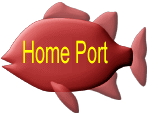 I I |
Wallace Gouk AMS® Society of Accredited Marine Surveyors, 2000 ABYC® 2001 ABYC® Standards Certified, 2009 ABYC® Certified Corrosion Analyst, 2015 Transport Canada Licensed Master, 2002 Transport Canada Tonnage Measurer, 2004 BoatUS® Approved Marine Surveyor, 2003 A Marine Surveyor for Ontario from Mississauga, Toronto, Hamilton to Oshawa, Whitby, Newcastle, Pickering, Trenton, Kingston, Gananoque and beyond |
|||